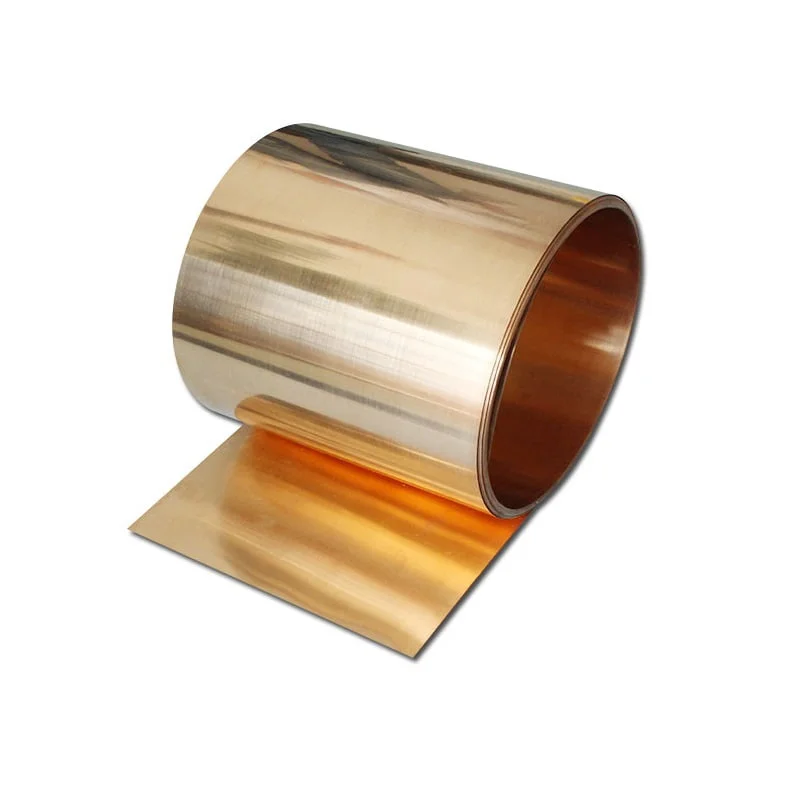
Beryllium copper C17200 is a high-performance alloy renowned for its exceptional mechanical properties, making it a preferred choice in various demanding applications. The alloy is a copper-beryllium composite, typically comprising about 1.8% to 2.0% beryllium. This combination results in outstanding mechanical characteristics, including high strength, excellent fatigue resistance, and notable hardness. This article explores the mechanical properties of beryllium copper C17200, discussing its relevance in industrial applications.
Strength
One of the defining features of C17200 is its impressive tensile strength, which can range from 480 MPa to over 700 MPa, depending on the temper and processing methods used. This strength is comparable to some steels, yet the alloy maintains a much lower density, making it advantageous in applications where weight is a consideration. The high tensile strength allows for the production of lightweight components that can withstand substantial loads, making C17200 ideal for aerospace and automotive applications where structural integrity is critical.
Hardness
The hardness of C17200 is another noteworthy attribute, often achieving values of around 150 HV (Vickers Hardness) or higher in its heat-treated form. The addition of beryllium significantly increases the hardness compared to standard copper alloys, enabling it to resist wear and deformation under high-stress conditions. This characteristic is particularly useful in manufacturing tools and dies, where abrasion resistance is essential for longevity and performance.
Fatigue Resistance
C17200 exhibits excellent fatigue resistance, which is vital in applications subjected to cyclic loading. The alloy can endure repeated stress without significant degradation in performance, making it suitable for components such as springs, fasteners, and electrical connectors. This resistance to fatigue is primarily attributed to the beryllium content, which enhances the alloy’s microstructure, allowing it to better absorb and dissipate energy during stress cycles.
Ductility and Workability
Despite its high strength, beryllium copper C17200 retains commendable ductility. The alloy can be easily formed, machined, and fabricated into various shapes, allowing for versatility in design and application. This combination of strength and ductility makes C17200 an excellent candidate for precision parts where tight tolerances are required. Manufacturers often utilize processes like forging, rolling, and extrusion to create components tailored to specific applications.
Electrical and Thermal Conductivity
While this article focuses on mechanical properties, it’s essential to note that C17200 also offers excellent electrical and thermal conductivity. The electrical conductivity can be around 15-25% IACS (International Annealed Copper Standard), which, although lower than pure copper, is sufficient for many electrical applications. The thermal conductivity of C17200, typically between 120 to 160 W/m·K, supports its use in applications where heat dissipation is crucial.
Corrosion Resistance
Beryllium copper C17200 displays commendable corrosion resistance, particularly in non-oxidizing environments. This property allows the alloy to maintain its mechanical integrity even when exposed to moisture, chemicals, and various industrial environments. The corrosion resistance of C17200 ensures longer service life and reduced maintenance costs for components used in harsh conditions.
Applications
The mechanical properties of beryllium copper C17200 make it suitable for a wide range of applications, including:
- Electrical Connectors and Contacts: Its excellent electrical conductivity and strength make it ideal for high-reliability applications.
- Precision Tools and Dies: The hardness and wear resistance of C17200 make it perfect for manufacturing cutting tools and dies.
- Aerospace Components: The lightweight nature combined with high strength and fatigue resistance is critical in aerospace engineering, where every gram counts.
- Mining and Oil Equipment: Components that must withstand harsh environments benefit from the durability and toughness of C17200.
Conclusion
In summary, beryllium copper C17200 is a remarkable alloy distinguished by its exceptional mechanical properties. The combination of high tensile strength, outstanding hardness, excellent fatigue resistance, and good ductility makes it a versatile material for a broad spectrum of applications. Its ability to perform well under various conditions, coupled with its non-sparking nature, positions C17200 as a valuable resource in industries that demand high-performance materials. As technology advances and the demand for lightweight, strong materials continues to grow, the significance of beryllium copper C17200 will likely increase, securing its place in modern manufacturing and engineering solutions.
